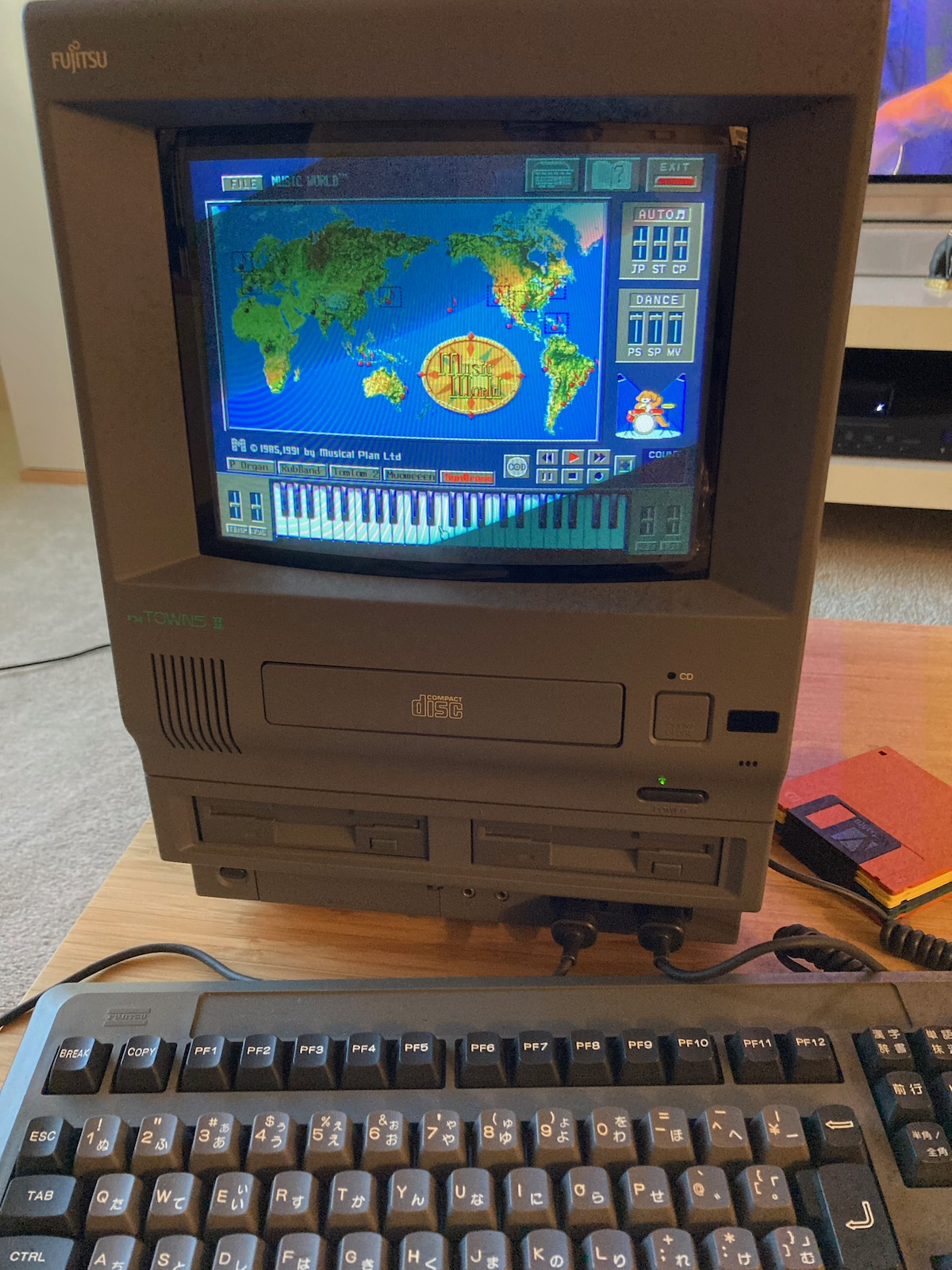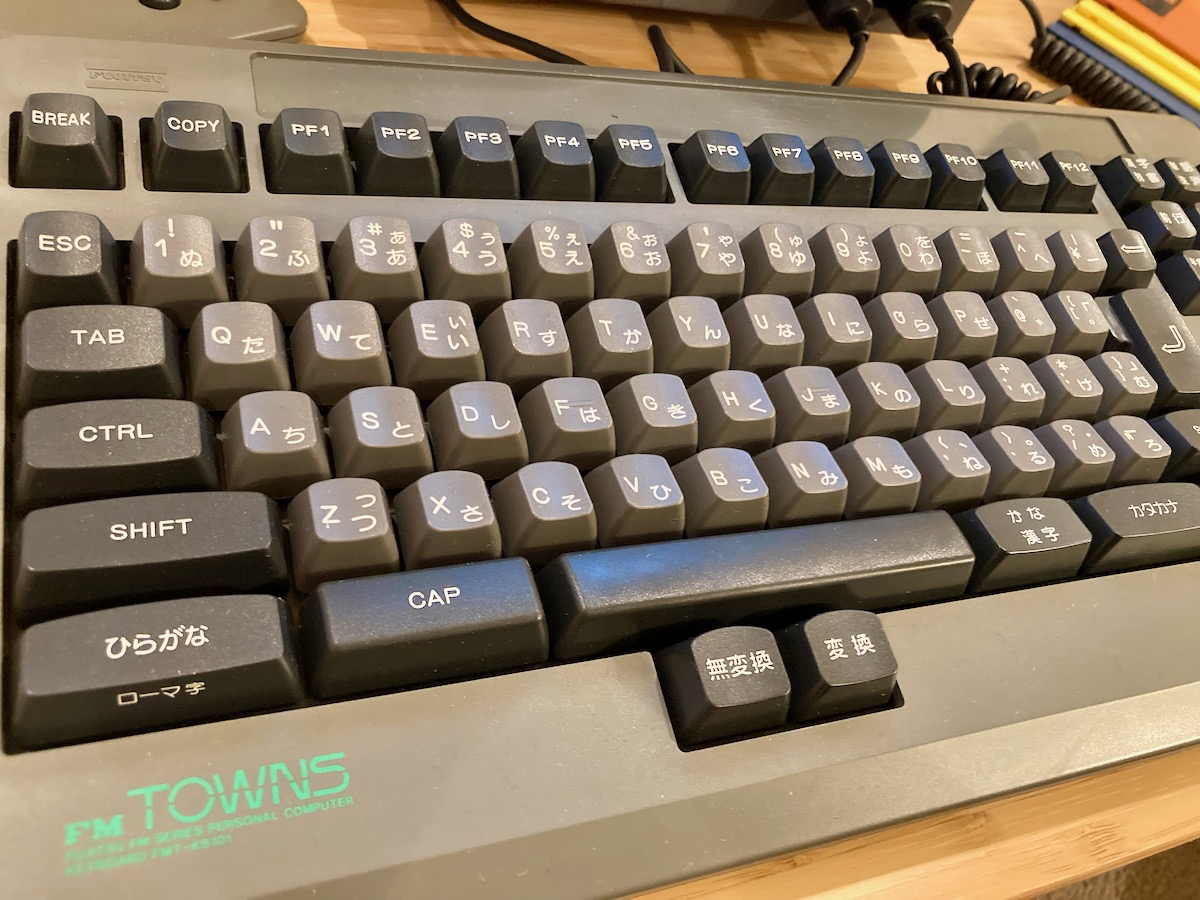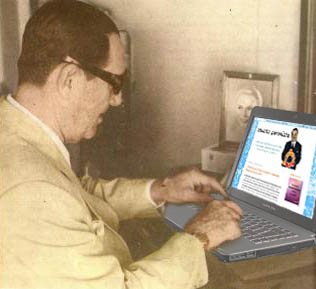If you want a parallel universe experience, try an FM Towns. They are x86 based were introduced in 1989 in Japan and ran through the 1990s. While they do run DOS, they have their own custom windowing system with a focus on MIDI audio/visual production using both a built in FM synth and PCM sampled wave form.
It is also possible to run Windows 3.x and Win95 (as well as Linux) if you want, but “Towns OS” is pretty cool and makes heavy use of read-only optical drive where the user stores on memory cards or floppy disks rather than installing the OS on a hard drive. However, since it has built in SCSI you can attach a hard drive for storing larger data.


This is why I come here! Awesome setup, I’ve never seen one before, thanks for sharing!
Woah. I’ve never seen one before. The design is amazing.
Wow this is amazing. I absolutely love the physical details from this era… it really takes me back to my youth.
It looks straight out of an early 90s broadcast studio, or something. Like, I can see it sitting next to a handful of Sony PVMs.
Oh hey the layout is standard! I love the Famicom, but the keyboard being different from all other Japanese keyboard is very annoying.
Oh god, everything about this beast is glorious. Does that keyboard qualify as a blunt weapon?
Was the CD drive stock to these? Early 90s seems early to have them. Must have been expensive!
Any neat 3rd-party software? Maybe games?
I’m a bigger fan of the Sharp X68000 (it’s so pretty!), but the FM Towns has the great advantage of having a lot more games in English. These are really cool systems.
I loved Nadia, the Secret of Blue Water, but it’s almost unknown here. There was a game based on the universe, a FM Towns marvel.
It is a 1992 japanese adventure game. Includes full talkie digitized audio, and synthesized music. It was sold on 2 CD-ROM XA discs.

spoiler
You control the young french inventor Jean and his friend, pretty adventurer Nadia, while fight the NeoAtlantean crews in the Nautilus submarine. Fun!
I always get a strong “serial experiment Lain” vibe from japanese CRT computers.







